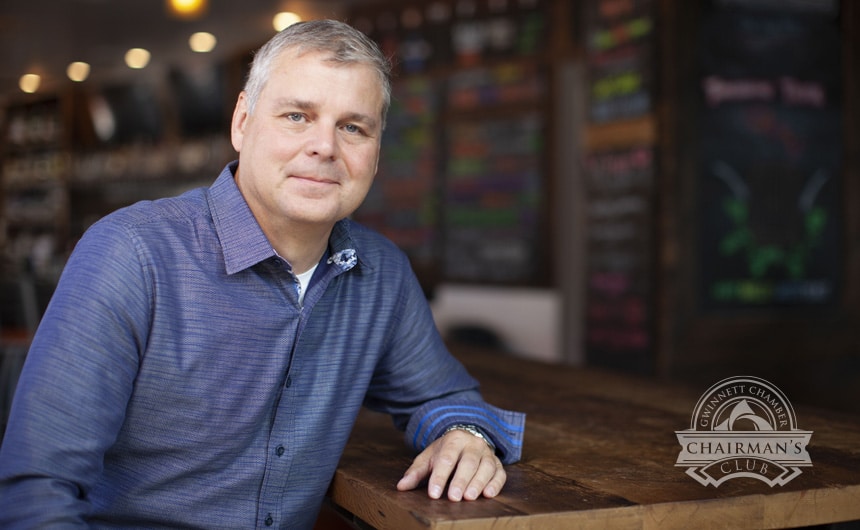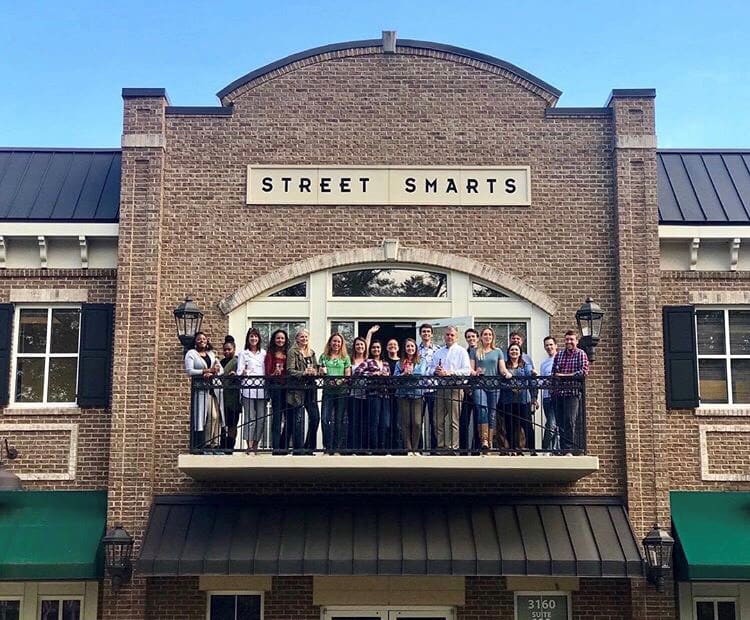As featured in the Fall/Winter 2019 issue of The Executive, an online magazine featuring members of Gwinnett Chamber’s Chairman’s Club.
Founded in 1955 as a traditional family-run advertising firm, Luckie & Co. has transformed into a comprehensive marketing solutions provider bringing “the science of data and art of marketing” to clients worldwide. Still owned and operated by the Luckie family, the company has grown to 120 full-time employees evenly split between their two locations, in Duluth and Birmingham, and was recently named one of the Top 25 Advertising Agencies in Atlanta by the Atlanta Business Chronicle. John Gardner, president of Luckie spoke to The Executive about the effects of swiftly changing trends in technology on marketing strategy and business-to-consumer communications.
Q: What’s different about Luckie’s approach to marketing and advertising?
A: Three core things: Our work is based on technology and analytics as much as it is creative, so we like to say we’re data driven, and creatively innovative. We’re also fiercely independent. In an age when big New York holding companies are buying firms and making decisions from a far-away headquarter office, our independent status allows us to make decisions based on the best interest of our clients and our employees instead of what New York may want. It’s all about having Madison Avenue talent with a sweet-tea personality —we are passionately collaborative, and our goal is to find the right solutions for our clients, not the easy ones.
Q: How has technology changed marketing and business development?
A: It’s completely revolutionized our business. What used to be the exclusive realm of the big idea is now all about the experience and we have so many data points at our disposal, and so many channels to deliver very personalized messages. Consumers don’t watch TV the way we used to; we don’t consume much print media either. And Millennials don’t feel the need to engage with traditional advertising, they want to experience and define brands. At Luckie we work with our partners to create data-driven programs that leverage social media and other channels for highly personalized experiences that are customized to stakeholders. By creating these experiences, we’re able to get clients closer to their customers and accelerate and extend brand value.
The move into artificial intelligence and programmatic advertising is here to stay, but one thing that hasn’t changed in marketing is the power of great storytelling. We must blend a whole brain approach to each marketing solution. Brands shouldn’t overcorrect and lose the impact of having a great story to tell, and you can’t ignore the power that technology brings to solving business problems.
Q: How often should companies update their marketing strategies?
A: I think organizations change their marketing strategies too often and their customer strategies not often enough. A company should be consistent in what message they deliver to the marketplace. What must evolve constantly is the way it’s delivered to ensure the information is reaching the right customer at the right time and in the right place. Companies that watch the behavior of their customers and shift gears to better engage with them are the ones that win.
At Luckie, we have a proprietary approach that involves evaluating data points from a brand’s entire ecosystem to help them figure out what they need to communicate with their customers. Basically, we can define the brand as a dynamic operating system in a true omni-channel approach.
So many companies have individual strategies for email, for broadcast and yet another for social media. The customer is getting different messages and different experiences through each channel and it’s confusing. Brand messaging that is consistent across channels can have a powerful impact. Take Regions Bank (a Luckie client) as an example. Their branding and messaging are recognizable and consistent in their stores, online, on social media, and in their television commercials. This enables the customer to know the brand as a partner and the brand to meet customer needs at an individual level.
Q: What does the future of marketing look like?
A: We’ll all be controlled by robots! (I’m only partly joking.) The advancement of marketing technology and the introduction of machine learning and artificial intelligence will make what we do more science than art. I think we’ll also see content become hyper-personalized and micro-targeted to an extent that only technology can achieve. But a great story, well-told, will always resonate and even the best technology can’t create that.
Q: What can business leaders do to prepare for this technology-based marketing?
A: Understand the level of disruption that’s occurring in our industry and recognize that it is happening so fast that no single resource can address it. But don’t get overwhelmed by the pace of change, instead embrace it with incremental movement. Look at why you need to make a change, rather than how you’re going to do things or when. Often, by the time you finish strategizing how you’re going to use a platform, the technology has surpassed you. We always start with what the customer experience will be and define the brand operating system across the channels, which allows us to become technology agnostic. That way the technology is an enabler rather than inhibiting success.
Q: What role does Luckie play in the Gwinnett County community?
A: Luckie is the largest marketing solutions firm in Gwinnett County and not only do many of our employees live here but we invest heavily in the community. I have a passion for Gwinnett County schools; that’s one of the reasons I moved to this community from Birmingham. Last year we invited Gwinnett County DECA teachers to an all-day session on the future of marketing to help them prepare their students. We gave them real-world examples to take back to their classrooms because we know today’s students will become Luckie employees tomorrow.
We’ve also expanded our involvement to higher education. We have a formal relationship with the Grady College at University of Georgia and have ended up hiring several students who’ve interned with us. It’s the cyclical nature of investing and mentoring, getting kids from the community into our office produces the best potential employees.
Our employees also speak at Gwinnett Chamber events where we bring research and real-world case studies for the benefit of other members. Our knowledge can help companies of all sizes, but it’s especially beneficial to the small businesses and nonprofits that may not have someone like us on board.



